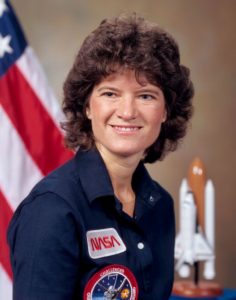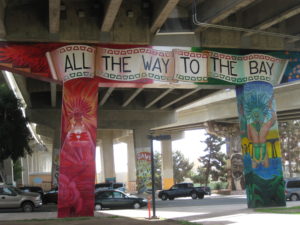In the News
Coronado’s Representative, Scott Peters, Weighs in on Chicano Park, Women Entrepreneurship, Immigration, and Other Issues
January 10, 2017
By Ann Marie Bryan
Coronado’s Congressional Representative, Scott Peters (D-CA-52) just finished his first week in the 115th Congress that convened Tuesday, January 3, 2017.
Bi-Partisan Efforts on Immigration, Female Entrepreneurship, Israel, and SEC rules on Angel Investing
Peters campaigned on his ability to work with his Republican colleagues across the aisle. His voting record bears this out. KPBS reports that “Peters… has voted against the majority of his fellow Democratic House members 12.2 percent of the time in the… [114th] Congress…”
KPBS inewsource reporter Joe Yerdardi explained, “[t]hat might not sound like much, but it’s more than twice the average of 5.8 percent among Democrats, and is surpassed by only 29 other members of the House, according to Congressional data analyzed by ProPublica, a nonprofit investigative news organization.”
On Tuesday, Jan. 10, Peters voted for San Diego Republican Congressman Darrell Issa’s bill to force a vote on any bill that has been passed in committee, so that it is put to a House vote within 60 days. This bill passed in the House.
While this bill passed the House in the first two weeks of Congress, most bills, given that Congress has just convened, have been simply assigned to the appropriate committee(s).
Keep in mind, other than the Ethics Committee, House Committees are apportioned based on percentages that reflect representation in the House of Representatives. The Republicans have a 55% majority in the House, so all committees will reflect those percentages and committee chairmans will be Republican.
Also remember that House committees, with some rarely used exceptions, control which bills will be debated and voted on the House floor. If a chairman does not want a bill discussed, he or she can “pigeon-hole” the bill, meaning the bill is not even considered. This tactic is used by both political parties equally.
Immigration
Issa and Peters also worked together by introducing on opening day legislation that would close a loop-hole on visas for foreign nationals arriving in the United States on the H1-B visa program. Four other Republican Congressmen, including another San Diego County Congressman, Duncan Hunter (R-CA-50), and two other Democratic Congressional Representatives have also co-sponsored this bill.
H1-B visas are issued to foreign nationals for positions that pay over $60,000 or require a Master’s Degree equivalency.
The Issa-Peters legislation would raise the pay requirement to $100,000 and eliminate any exception to the Master’s degree requirement.
This bill, H.R.-170, “to amend the Immigration and Nationality Act to modify the Definition of H1-B non-immigrant,” has been sent to the House Judiciary Committee. Judiciary Chairman Congressman Bob Goodlatte (R-VA-6) supports tighter immigration requirements, so the forwarding of this bill to the House floor vote looks promising.
Israel

On Thursday, Peters joined 233 Republicans and 109 Democrats in voting for House Resolution 11 that “Object[s] to United Nations Security Council Resolution 2334 as an obstacle to Israeli-Palestinian peace, and for other purposes.” This resolution is in response to the United Nations Security Council Resolution, issued a little over two weeks ago, that condemned Israeli settlements in the West Bank. While the United States usually supports Israel in the Security Council, President Obama declined to veto this resolution. By supporting this resolution, Peters has disagreed with President Obama on this issue.
Peters has also supported a proposed House resolution that would issue a formal resolution:[e]xpressing the sense of the House of Representatives and reaffirming long-standing United States policy in support of a negotiated two-state solution to the Israeli-Palestinian conflict.”
Support of Women’s Entrepreneurship

Peters is co-sponsoring H.R. 255 which amends the Science and Engineering Equal Opportunities Act to add: “encourage its entrepreneurial programs to recruit and support women to extend their focus beyond the laboratory and into the commercial world.” He also co-sponsored, a bi-partisan bill introduced by Rep. Barbara Comstock (R-VA-5) which aims: “[t]o inspire women to enter the aerospace field, including science, technology, engineering, and mathematics, through mentorship and outreach.”
Angel Investing
Peters is also a co-sponsor on another bill that also has bi-partisan sponsorship. This bill, H.R. 79, was introduced by Republican Steve Chabot (R-OH-1), and clarifies terminology in the “Helping Angels Lead Our Startups Act” (“HALOS Act”) that was passed by the Republican controlled 114th Congress. This bill will most likely make it out of committee in some form.
Chicano Park Under the Bridge

Chicano Park is now a National Landmark. Peters co-sponsored the bill with fellow San Diego Democratic Congressman Juan Vargas (D-CA-51).
In the 115th Congress, Peters co-sponsored a bill with Juan Vargas, H.R. 199. H.R. 199, “The Chicano Park Preservation Act” states: “To authorize the Secretary of the Interior to conduct a special resource study of Chicano Park, located in San Diego, California, and for other purposes.“ This special resource study would have, among other things, “determine the suitability and feasibility of designating the site as a national Historic Landmark.” This bill was assigned to the House Natural Resources Committee. Juan Vargas had introduced a “Chicano Park Preservation Act” H.R. 3711 on October 8, 2016 and it passed the House on December 5, 2016. Congress ended before it could be voted on in the Senate.
On January 11, 2017, the U.S. Department of the Interior announced that they had designated Chicano Park as a National Historic Landmark. For a full understanding of the rationale and a listing of all 24 new historical landmarks designated by the U.S. Interior Department follow this link.
Oil Drilling Off the Coast of California
Peters has also co-sponsored legislation that would “permanently prohibit the conduct of offshore drilling on the outer Continental Shelf off the coast of California, Oregon, and Washington.” This bill, House Bill 169, would amend the Outer Continental Shelf Lands Act. This bill has been sent to the House Natural Resource Committee chaired by Congressman Rob Bishop (R-UT-1.)